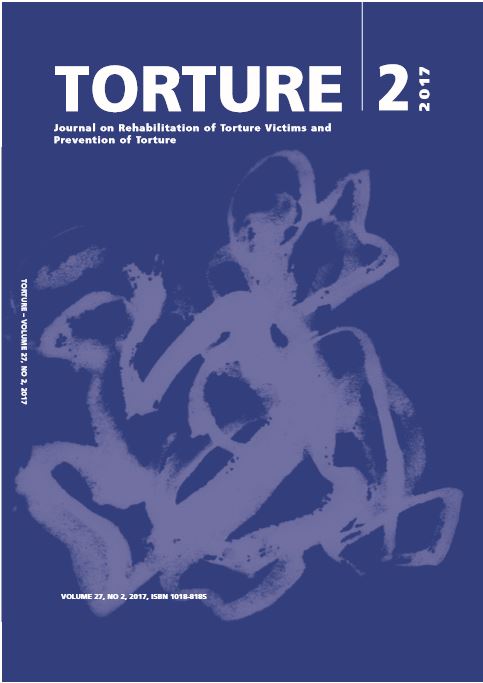Drawing the fine line between interrogation and torture: towards a Universal Protocol on Investigative Interviewing
DOI:
https://doi.org/10.7146/torture.v27i2.97234Palabras clave:
human rights, detention, torture, investigative interviewing, interrogation,Resumen
Interrogation is an essential component of a comprehensive view of torture and deserves special reflection. In interrogational torture, physical and psychological techniques serve the purpose of creating the physical, cognitive and emotional exhaustion in the detainee considered necessary for the successful questioning of a potential source of information. Interrogation can, at the same time, be conducted in a way that deepens the effect of torturing methods and environments when the interview is carried out in a way that fosters cognitive and emotional exhaustion, leading to breakdown (Pérez-Sales, 2016). Interrogations follow procedures and regulations, but in most countries there is a lack of transparency and information. Academia has only recently begun to do systematic research on interrogation and interviewing techniques (Walsh, Oxburgh, Redlich, & Myklebust, 2017; Intelligence Science Board, 2006; Meissner, 2012; Rassin & Israëls, 2014) to prove effects beyond personal opinions.Descargas
Publicado
2017-12-05
Cómo citar
Pérez-Sales, P. (2017). Drawing the fine line between interrogation and torture: towards a Universal Protocol on Investigative Interviewing. Torture Journal, 27(2). https://doi.org/10.7146/torture.v27i2.97234
Número
Sección
Editorial
Licencia
We accept that some authors (e.g. government employees in some countries) are unable to transfer copyright. The Creative Commons Licence Attribution-NonCommercial-NoDerivatives 4.0 International (CC BY-NC-ND 4.0) covers both the Torture Journal and the IRCT web site. The publisher will not put any limitation on the personal freedom of the author to use material contained in the paper in other works which may be published, provided that acknowledgement is made to the original place of publication.


